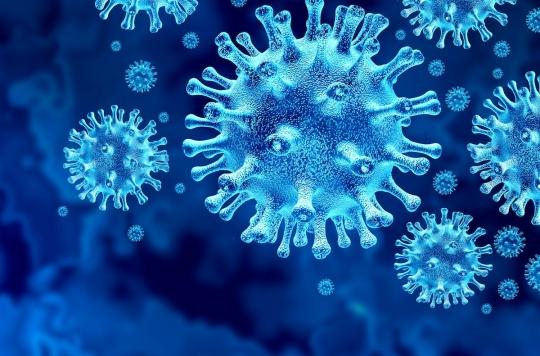Researchers have looked at cathepsins, drugs that act directly on enzymes that the virus uses to multiply in our cells.

- The goal of this drug is to intervene when the virus releases its genetic material into the cell to prevent it.
- Remdesivir also acts as an inhibitor of the action of polymerases, enzymes necessary for the proliferation of viral RNA, without success.
All over the world, researchers are trying by all means to counter SARS-CoV-2. Some have focused on designing a vaccine while others have looked at treatments. Among them, Slovenian researchers from the University of Ljubjana have focused their research on cysteine cathepsins, drugs that inhibit certain proteases, which act directly on enzymes that the virus uses to multiply in our cells. They presented the results of their analysis on November 2 in the journal PLOS Pathogens.
Prevent virus replication
SARS-CoV-2 can use several strategies to infect our cells, among which the Spike protein can bind to an enzyme, transmembrane peptidase, where it releases RNA into the cell. The goal of this drug is to intervene when the virus releases its genetic material into the cell to prevent it. Spike protein uses one of our enzymes, cathepsin L, to activate and allow the replication of the RNA of the virus in our cells.
This drug track is not the first to target this therapeutic route. Remdesivir also acts as an inhibitor of the action of polymerases, enzymes necessary for the proliferation of viral RNA. However, the World Health Organization (WHO) ended up advising against the use of Remdesivir while this treatment was the first to receive marketing authorization to treat severe forms.
Results expected for May 2021 for the mystery molecule from the Pasteur Institute in Lille
Currently, there is no treatment whose effectiveness on the virus has been clinically proven. However, corticosteroids have shown efficacy on severe forms of the disease, which can reduce the length of hospitalization for infected patients. For several months, researchers at the Pasteur Institute in Lille have been working on “a mystery molecule” which they hope can effectively treat Covid-19 infection. Clinical trials are ongoing and results expected in May 2021.

.

















